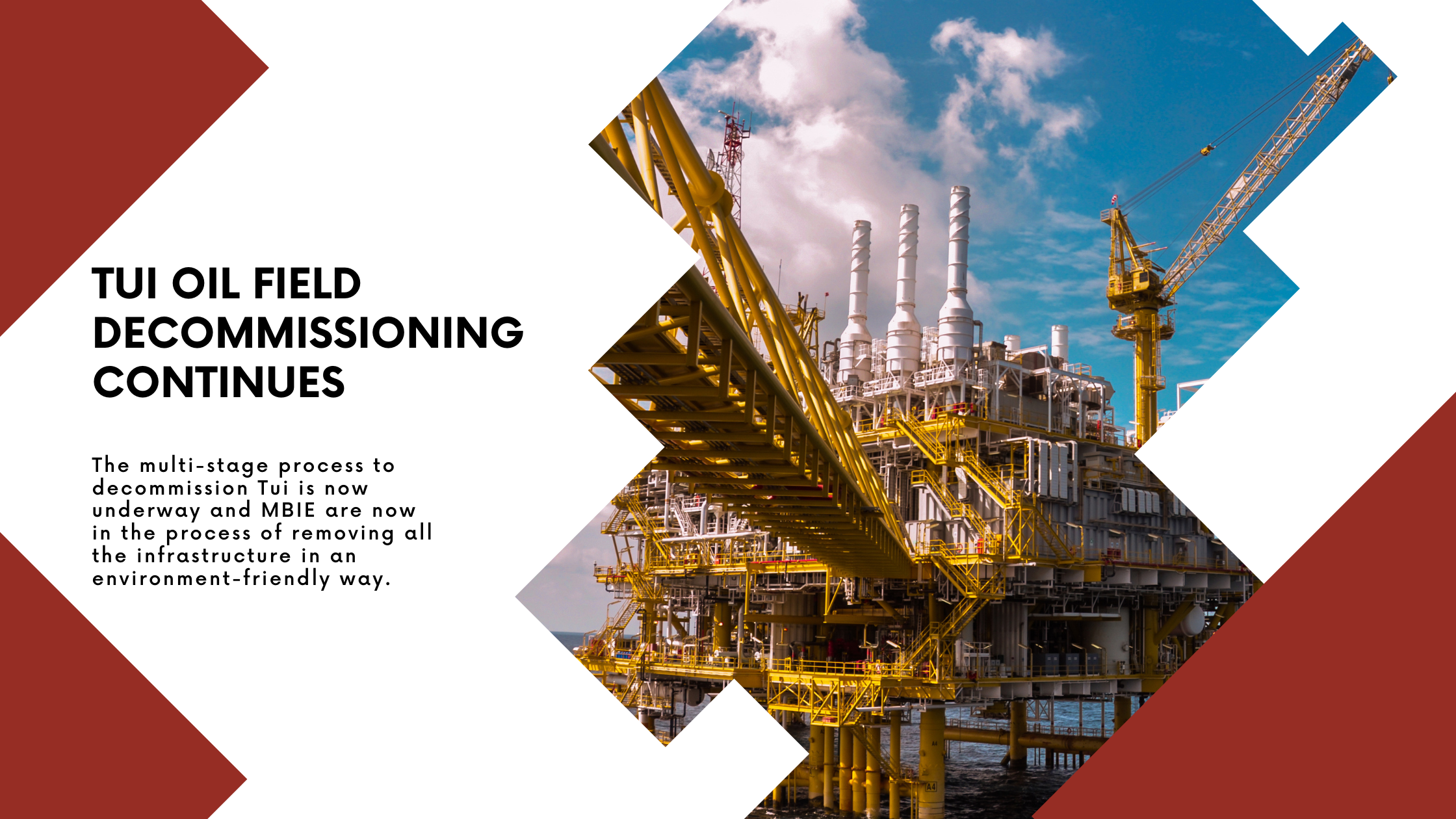The Crown inherited the liability for cleaning up the Tui oil field when the permit operator Tamarind Taranaki Ltd (TTL) was placed in receivership and liquidation in December 2019. Its parent company, Tamarind Resources Private Limited (Singapore) went into receivership in March 2020 and into liquidation in April 2020. TTL collapsed owing more than $380 million to unsecured creditors which include the Crown.
The liquidators of the Tamarind companies have disclaimed the Tui assets to the Crown, but the petroleum mining permit currently remains with the liquidators. The Crown has been loaded with the liabilities and the cleanup cost was estimated at $155 million in 2020.
According to Radio NZ in 2019MBIE estimated the Crown would have to pay up to $855m for decommissioning oil and gas fields between now and 2046 due to the Government’s interest in offshore oil fields.
The multi-stage process to decommission Tui is now underway and MBIE are now in the process of removing all the infrastructure in an environment-friendly way.
The first stage of decommissioning involves the removal of the floating protection, storage and offloading (FPSO) vessel Umuroa from Tui. This field has no pipeline to the coast.
According to MBIE the production lines that connect the five wells to the Umuroa have been flushed. The next stage will be to disconnect these lines from the Umuroa. Once disconnected they will be lowered to the seafloor and then the mooring system that has kept the Umuroa anchored over the field will also be detached. MBIE estimates its completion in May or June allowing the Umuroa to depart.
To carry out this work, specialist vessels and tugs from overseas are being used.
The second stage of the project involves removing the subsea infrastructure. This will involve lifting and removal of production lines and the mooring system from the seafloor along with any other equipment which is on the seabed.
The third stage involves plugging and abandoning the wells in accordance with good industry practice and in compliance with New Zealand regulations. Contracts for the subsea removal and plugging of the well have yet to be granted but MBIE’s intention is for this work to occur in the summer of 2021/22.
MBIE is providing updates on developments on the Tui webpage. If anyone has queries they can contact the project at decommissioning@mbie.govt.nz
See also: Tui Decommissioning and Crown may foot $155m bill to decommission Taranaki oil field
Update on progress with the Crown Minerals Act (CMA) review
Last week Tieke reported on the changes to the Crown Minerals Act to deal with decommissioning. MBIE and NZ Petroleum and Minerals unit is now reporting on Stage II.
The remaining areas of the CMA review will be progressed in 2021 while taking into account the views of submitters as part of the public consultation process in 2019/2020. ECO suggests that you remind MBIE and Crown Minerals that we should be reducing minerals extraction and using what is already above ground by means of “urban mining”. In their November 2019 paper “Responsibly Delivering Value, MBIE makes no mention of the scope for substituting away from minerals to renewable materials. MBIE talks about the “circular economy” without reference to living within planetary and local limits but just as resource reuse and recovery.
“Any further changes to the CMA will be progressed through a separate legislative amendment process and there will be further opportunities for you to provide feedback.” The announcement gives no deadline or paper for submissions.
If you have any questions about changes to the CMA you can email MBIE’s Resource Markets Policy team, Resource.Markets.Policy@mbie.govt.nz.

